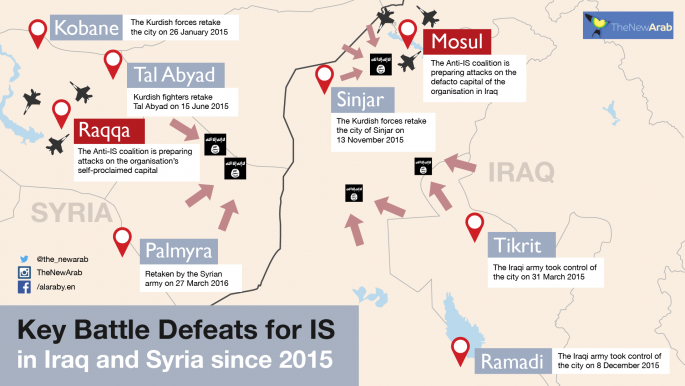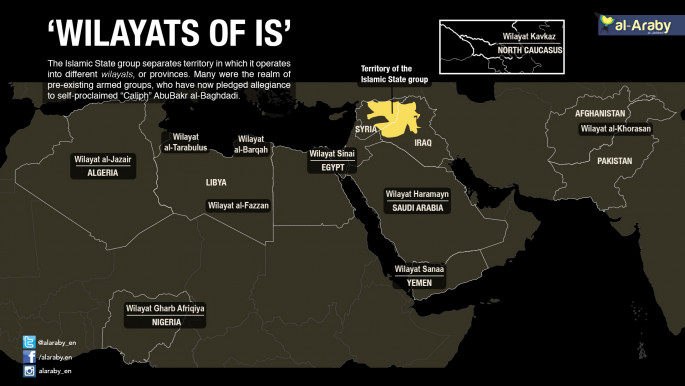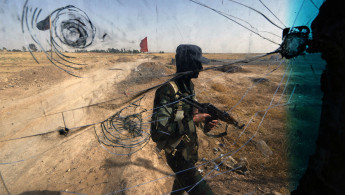Target locked: Islamic State in Libya after Iraq losses
Militants within the Iraqi borders lost control of nearly half of terrain, despite earlier estimates suggesting that 40 percent had been recaptured by US-backed Iraqi forces.
"The number right now in Iraq is about 45 percent of the territory they once held has been recovered," Pentagon spokesman Peter Cook said.
Across the border in Syria, earlier estimates nearly doubled with the current number now standing "anywhere between 16 to 20 percent."
The Islamic State group has suffered a recent series of military setbacks and lost territory in both Iraq and Syria as government forces, including international troops from the anti-IS coalition, launched an offensive against the group in August 2014.
Most recently, government fighters launched a large-scale military operation to retake the strategic town of Rutba in the Anbar province after several victories in Ramadi and Hit in Iraq.
But militants still control other important cities including Mosul in the north and Fallujah, just several miles from the capital.
In Syria, the group maintains control of Raqqa, the de-facto capital of their self-proclaimed Islamic caliphate.
Despite this the group is increasingly turning to insurgency-style attacks to keep pressure on both the Iraqi and Syrian governments.
Earlier this month, IS launched a coordinated assault on a natural gas plant north of Baghdad that killed at least 14 people, while a string of other bomb attacks in or close to the capital killed 15 others.
In Syria, a number of pumping stations at al-Shaer gas field in Homs were blown up by militants while a surprise attack on a hospital last week killed dozens of government troops.
Baghdad-based US Major General Gary Volesky said the Islamic State group's "ability to conduct large-scale offensive operations has primarily stopped", noting "they're more on the defensive, trying to delay Iraqi security forces just to buy time".
 |
|
Virtual fall
On the virtual battlefield – a key strategy for the militant group that both promotes its ideology and recruits extremists online – US officials said that the military had ramped up cyber-operations against the group earlier this year.
The officials said at the time that operations included efforts by US Cyber Command at Fort Meade, Maryland, to prevent the group from using the internet and social media to communicate and distribute propaganda aimed at attracting and inspiring recruits.
"For every pro-Daesh Twitter handle, there are now six calling out its lies and countering its message," US envoy to the anti-IS coalition, Brett McGurk said, referring to IS by its Arabic acronym.
The Libyan rise
As the Islamic State group continues to lose control in Iraq and Syria, it seems to have redirected its focus to North Africa where its Libya-affiliate has steadily grown to an estimated 5,000 militants.
Last year, IS seized the coastal city of Sirte and transformed it into a training camp for militants that could be used to launch attacks on Europe, leaders fear.
On Monday, a 25-member group, including the United States, Italy and other Libyan allies agreed to arm the war-torn country's newly-established unity government to fight the Islamic State threat.
"The United States stands ready to provide humanitarian, economic and security support to the new Libyan government on their request," US Secretary of State John Kerry said.
European leaders – who are concerned about the rise of the Islamic State on their doorstep – assured Libyan authorities of their readiness "to respond to the Libyan government's requests for training and equipping the Presidential Guard and vetted forces throughout Libya," they said in a joint statement.
 |
|



